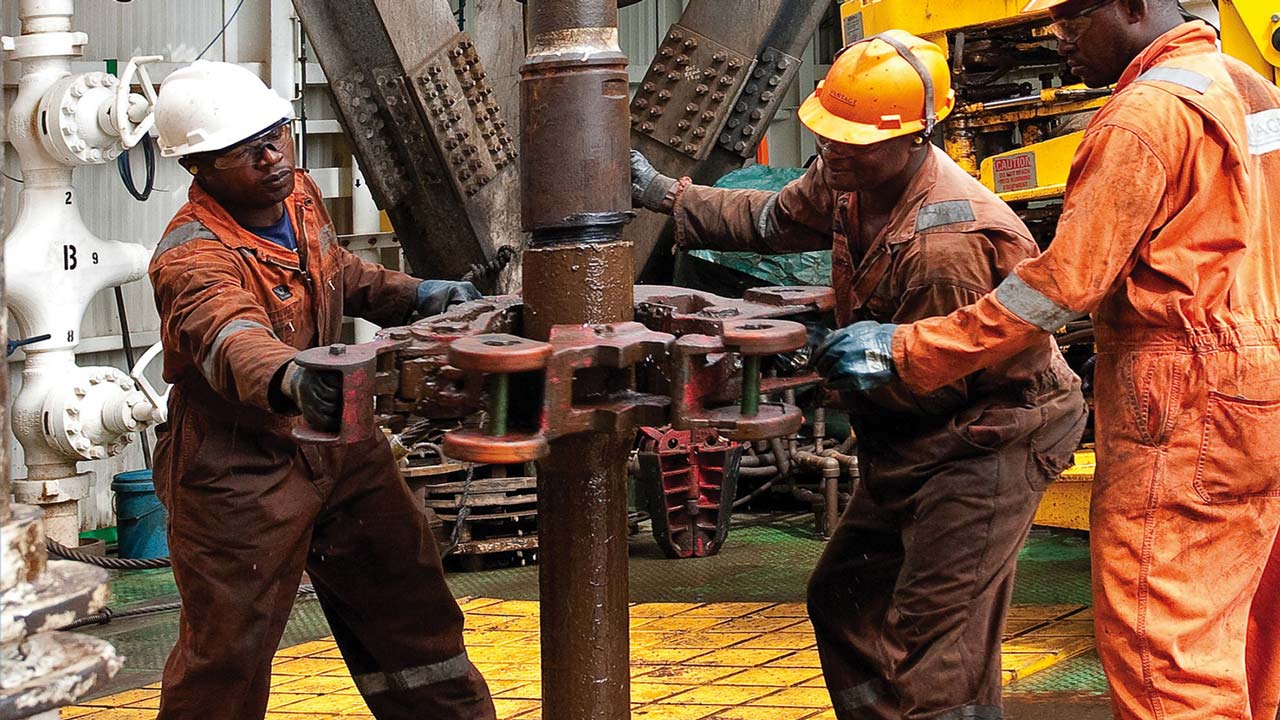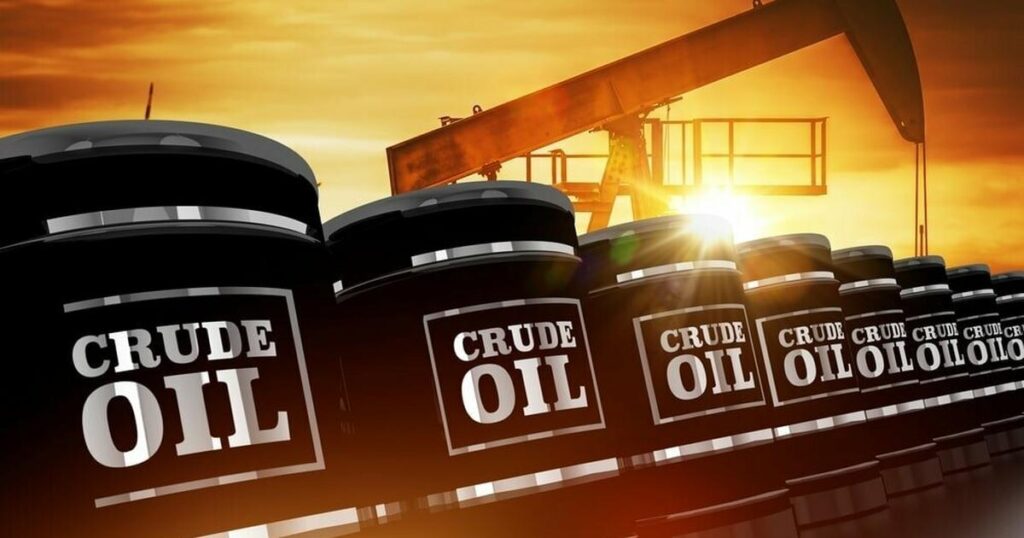Top Lists
Top Oil Producing Countries in Africa (2023)

In this article, RNN presents a list and highlights of the leading oil-producing countries in Africa.
The oil industry critically fuels Nigeria’s economy, powering transportation, manufacturing, and other vital aspects of modern life. A handful of key players dominate global oil production, comprising ten countries. Africa, rich in natural resources, greatly influences the global oil sector through the active participation of numerous nations.
These countries represent essential actors in Africa’s oil production. While the oil industry offers substantial economic prospects, it also presents challenges, such as environmental issues and the imperative for responsible resource management.
Table Of Contents
| RANK | NAME OF COUNTRIES | BARRELS PER DAY |
| 1 | Angola | 1.16 million |
| 2 | Nigeria | 1.02 Million |
| 3 | Algeria | 970,000 |
| 4 | Libya | 946,000 |
| 5 | Egypt | 556,440 |
| 6 | Republic Of The Congo | 275,000 |
| 7 | Gabon | 195,000 |
| 8 | Ghana | 172,000 |
| 9 | Equatorial Guinea | 88, 000 |
| 10 | Chad | 68, 000 |

10. Chad
Chad holds the 10th position among oil-producing countries in Africa, with an estimated daily output of 68,000 barrels. This country officially known as the Republic of Chad, is a landlocked country situated in North and Central Africa. It shares borders with Libya to the north, Sudan to the east, the Central African Republic to the south, Cameroon to the southwest, Nigeria to the southwest (along Lake Chad), and Niger to the west. The population of Chad stands at 16 million, with 1.6 million residing in the capital and largest city, N’Djamena.
In 2021, Chad ranked 190th on the Human Development Index, with a score of 0.394, making it the second-lowest-ranked country. It is considered a least developed country, grappling with the challenges of extreme poverty and pervasive corruption, positioning it as one of the world’s poorest and most corrupt nations. The majority of its population lives in poverty, primarily as subsistence herders and farmers. Since 2003, crude oil has eclipsed the traditional cotton industry, becoming the country’s primary source of export revenue.
9. Equatorial Guinea
Equatorial Guinea produces 88,000 barrels of oil daily, ranking it ninth among the Oil Producing Countries in Africa,. This country, officially known as the Republic of Equatorial Guinea, is located on the west coast of Central Africa and covers 28,000 square kilometers.
Despite its relatively small size, Equatorial Guinea plays a significant role in Africa’s oil sector, experiencing substantial growth in production, mainly due to offshore drilling. The oil industry makes a substantial contribution to the nation’s GDP.
The economy of Equatorial Guinea heavily relies on its oil and natural gas sector, constituting nearly 95% of its GDP and 99% of its export earnings.
8. Ghana
Ghana, the newest oil producer in the region, also ranks among the oil-producing countries, producing 172,000 Barrels per day. They reside adjacent to the Gulf of Guinea and the Atlantic Ocean to the south. Encompassing an area of 239,535 km2 (92,485 sq mi), Ghana includes diverse biomes ranging from coastal savannas to tropical rainforests. With a population exceeding 32 million, Ghana is the second-most populous nation in West Africa, trailing Nigeria.
Ghana produces and exports hydrocarbons, including sweet crude oil and natural gas. The Ghana Oil Company, a 100% state-owned filling station company, holds the leading position in petroleum and gas filling stations. Supervising hydrocarbon exploration and production is the Ghana National Petroleum Corporation, also state-owned. Ghana’s goal is to boost oil production to 2.2 million barrels (350,000 m3) per day and gas production to 34,000,000 cubic meters (1.2×109 cu ft) per day. In 2007, the Jubilee Oil Field, containing as much as 3 billion barrels (480,000,000 m3) of sweet crude oil, was discovered. Estimated reserves include up to 5 billion barrels (790,000,000 m3) to 7 billion barrels (1.1×109 m3) of petroleum.
7. Gabon
Gabon, situated in Central Africa, ranks as Africa’s seventh-largest oil producer, churning out approximately 195,000 barrels of oil daily. The global drop in oil prices has significantly impacted Gabon’s oil industry, leading to reduced oil production and export revenue, subsequently lowering the country’s GDP. Oil revenues now account for 50% of the GDP and makeup 80% of the country’s export portfolio.
Gabon’s oil-related income has resulted in a per capita GDP of $8,600, but it’s apparent that income distribution is skewed, with the wealthiest 20% of the population earning over 90% of the income, while approximately one-third of Gabon’s population lives in poverty.
6. Republic Of The Congo
The Democratic Republic of The Congo produces an average of 275,000 barrels of oil per day, ranking 6th among African oil-producing countries. The Republic of the Congo, also known as Congo-Brazzaville or simply Congo, is situated on the western coast of Central Africa, west of the Congo River. It shares borders with Gabon to the west, Cameroon to the northwest, the Central African Republic to the northeast, the Democratic Republic of the Congo to the southeast, the Angolan exclave of Cabinda to the south, and the Atlantic Ocean to the southwest.
5. Egypt
Egypt maintain a steady oil production of approximately 556,440 barrels per day. This Country officially known as the Arab Republic of Egypt, spans the northeast corner of Africa and the Sinai Peninsula in the southwest corner of Asia.
The Egyptian government has actively worked to attract foreign investment by implementing investor-friendly reforms. These reforms include reducing subsidies to EGPC and decreasing arrears payments to international oil companies.
Egypt’s state-owned oil company, the Egyptian General Petroleum Corporation (EGPC), collaborates with various international oil companies such as Eni and BP in both offshore and onshore production operations.
4. Libya
Libya stands 4th among oil-producing countries in Africa, extracting 946,000 Barrels per day. It holds the 10th-largest proven oil reserves globally. Libya joins international organizations like the United Nations, Non-Aligned Movement, African Union, Arab League, OIC, and OPEC.
Located in North Africa’s Maghreb region, Libya’s economy relies heavily on oil sector revenues, which make up more than half of its GDP and account for 97% of its exports. The country boasts the largest proven oil reserves in Africa and significantly contributes to the global supply of light, sweet crude. In 2010, when oil prices averaged $80 per barrel, oil production comprised 54% of Libya’s GDP. In addition to petroleum, Libya possesses natural gas and gypsum as its other valuable natural resources.
3. Algeria
Algeria produces around 970,000 barrels of oil per day, making it one of Africa’s top oil-producing nations. The country, officially known as the People’s Democratic Republic of Algeria, is located in North Africa. It ranks tenth in Africa for population and thirty-second worldwide. Algiers, situated on the northern Mediterranean coast, serves as the capital and largest city.
Algeria’s economy heavily relies on petroleum. It became an OPEC member in 1969. The country produces about 970,000 barrels of crude oil every day. Additionally, it’s a significant gas producer and exporter with strong connections to Europe. Hydrocarbons play a crucial role in Algeria’s economy, contributing roughly 60% of budget revenues, 30% of GDP, and 87.7% of export earnings. Algeria holds the world’s tenth-largest natural gas reserves and is the sixth-largest gas exporter. In 2005, proven natural gas reserves were reported at 4.5 trillion cubic meters. It also ranks sixteenth in oil reserves.
Algeria has maintained a consistent level of oil production for many years, which in turn supports various sectors of its economy through revenue generated from oil exports
2. Nigeria
This is Africa’s second-largest oil producer and holder of the continent’s second-largest proven oil reserves, producing more than 1.02 million barrels per day. Nigeria, officially known as the Federal Republic of Nigeria, lies in West Africa, positioned between the Sahel to the north and the Gulf of Guinea to the south in the Atlantic Ocean. This country holds the title of the largest economy in Africa, ranking 31st globally in nominal GDP and 30th in GDP based on purchasing power parity (PPP). As of 2022, the GDP (PPP) per capita stands at US$9,148, slightly exceeding that of Ghana or Ivory Coast but trailing South Africa, Egypt, or Morocco. Exxon Mobil, Eni, Chevron, Total, and Shell, some of the world’s leading oil companies, operate in Nigeria under the supervision of the state-owned Nigerian National Petroleum Corporation (NNPC).
1. Angola
Angola, situated on the west-central coast of Southern Africa, officially known as the Republic of Angola, holds the distinction of being Africa’s largest oil producer. It ranks as the second-largest Portuguese-speaking nation in terms of both total area and population, following Brazil in both aspects and stands as the seventh-largest country in Africa.
In 2019, Angola’s daily oil production stood at around 1.4 million barrels but has since increased to 1.16 million barrels per day. This growth can be attributed to its substantial offshore oil reserves in the South Atlantic. Noteworthy international oil companies like China National Offshore Oil Corporation (CNOOC), Total, BP, Chevron, Eni, Exxon Mobil, and Statoil have been operating these reserves.
